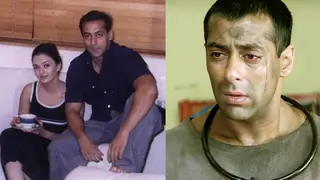Mansabdars
Ok... Mansabdari/Jagirdari system is an extremely complex system... and when Akbar started it off there were about 8000 Mansabdars (went up to approx 15,000 by end of Aurangazeb's reign) - with 66 ranks... so, I'll give a basic gist... also there are differences/exceptions in many cases... I only used those parts of it that'll be helpful for my story...
So, please don't use this as reference, just a general explanation...
Mansabdar just means officer - can be civil (like Heera's father was) or Military (like AMK shall be)
I'll describe the military based Mansabars
Military Mansabdars (most common type) - maintained a portion of men for army. They also collected tax & handed it to Emperor.
Lowest ranking Mansabdars took care of about 10 horsemen. Highest ranking about 10,000.
2500 horsemen and above were called Amirs.
The higher Mansabdari (5000 horsemen and above) were only granted to royals and their aristocratic relatives.
Now Mansabdars needed a large place to hold/take care of/maintain these men. So, apart from the salaries they received, they were also given land grants/lands (jagirs). Generally, Mansabdars were not in charge of administration of the lands they were in charge of - the land was only meant as a revenue to maintain the army men. (Jagirdars used to collect tax hand it to Mansabdars.. in some cases, Jagirdars and Mansabdars were the same, in some places they were different etc etc)
Now, in order to make sure that these Mansabdars didn't act like Lord of the Land' Akbar was very clever and ensured that these Mansabdars were transferred every three years (much like how Govt/bank officers are transferred today so they don't become Lord and Boss of their departments) Also, their positions/salaries/Mansabdari wealth etc was not hereditary - to help keep corruption to a minimum.
However, in special cases, exceptions were made. And sometimes, the lands that the Mansabdar were on, were granted to the family as permanent holding - Watan jagir/homeland jagir it was called. Watan Jagirs were hereditary and non-transferable.
Again there were different cases of Watan Jagirs too. Most common example was where ancestral property was permanently given to family (like in Heera's case). Sometimes, for a particularly favourite Mansabdar, the land could be permanently granted in his care and remained with his family after his demise. (Which automatically meant the family were being cared for even after the demise of the Mansabdar).
Now THIS is the clause/term AMK was referring to when he said a Special Mansabdar, but permanently posted at Parnagarh (I would have to go into ALL these details of the Mughal administration system... if I had to describe it - so kept it simple)
Anyway, by the time of Aurangazeb's era, the Mansabdari system had become a corrupt system.. there were different officers, different parts of the country, using these laws to their advantage...
and Akbar basically did something like this...
Footnote
Akbar was the architect of the Mansabdari system.
It was an amazing system started by Akbar... but as the years went on, it fell apart...
There were many clauses to ensure it remained smooth - for e.g. that the Mansabdars didn't ill-treat the people they were in charge of (like peasants couldn't be overtaxed during famine etc) but many didn't pay heed to it.
Corrupt Mansabdars used to hand in their record-books saying they were taking care of thousands of army men, and receive high salaries in return, when in reality they would only maintain hundreds.
And whenever there used to be an inspection, they would round up barbers/slaves/farmers etc dress them up like soldiers and present them to the inspector. (Even Akbar has mentioned how he saw this happening, but was unable to come up with proper solution to do away with this practise)
As time went by, they started catering to their own families. Even if Mansabdari system was not hereditary, a Mansabdar's son would somehow get a lot of advantage and get easy promotions to high ranking Mansab...
AMK was at a time, where he saw nobles taking advantage of the system day in day out. When the circumstances were bad, he also took advantage of the system, like the other officers of his time... to save the lady of his life.😊

































692